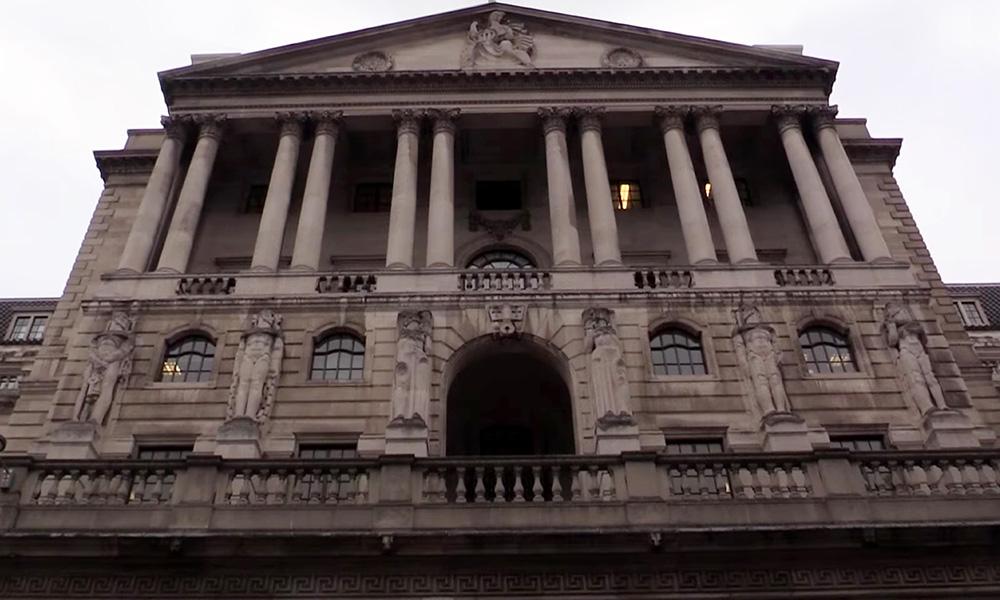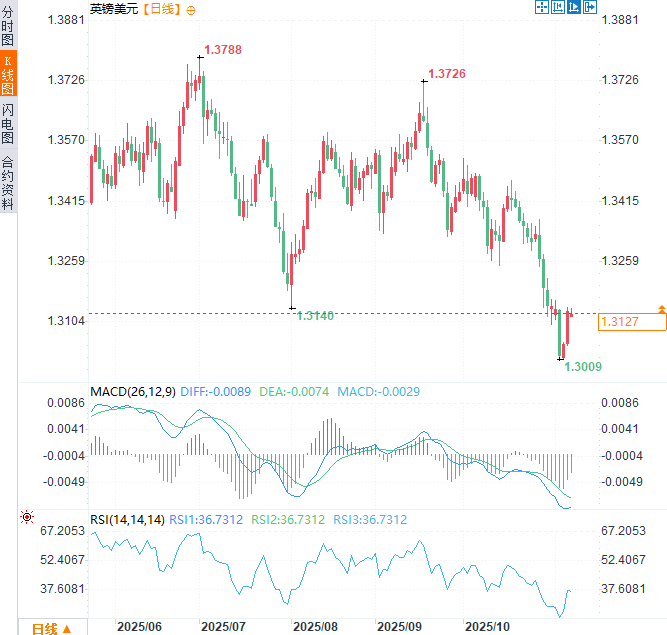The Bank of England governor stated that "the most stringent period is over," fueling market expectations of an interest rate cut.
2025-11-07 09:23:07

Of the nine members of the Bank of England's Monetary Policy Committee, five voted to keep the benchmark interest rate unchanged at 4%, while the remaining four supported a 25 basis point cut.
The vote was closer than expected, with the market anticipating a 6-3 majority to hold the rate steady.
Bank of England Governor Bailey said economists generally expect an interest rate cut before Christmas.
He stated, "We have passed the peak of restrictive policy – this outcome is in line with expectations given that we have cut rates five times (since August 2024). Personally, while I believe the policy remains restrictive, the most stringent period is over."
Regarding the timing of the next interest rate cut, Bailey said he would closely monitor the inflation and labor market data to be released on December 18 (before the last monetary policy meeting of the year).
Pele said: "I will certainly be watching the rest of the year and the evidence we see between now and our last meeting."
He added that the Monetary Policy Committee could also take into account the budget that Chancellor Rachel Reeves is scheduled to announce on November 26.
The Bank of England said in a statement that the inflation rate in September was 3.8%, which is likely to have peaked and a cooling trend in inflation is forming.
The European Central Bank stated that this assessment was "supported by a still-tight monetary policy stance." The bank added, "This is reflected in slower wage growth and service price inflation, with underlying deflationary pressures stemming from weak economic growth and the accumulation of spare capacity in the labor market."
The Bank of England warned that future interest rate cuts will depend on the evolution of the inflation outlook. If the disinflationary process continues, the benchmark interest rate is likely to continue its gradual downward trajectory.
Victoria Clark, chief UK economist at Santander Bank, said: "I think this is a case of the doves gaining the upper hand in the debate."
Bank of England Governor Bailey stated unequivocally: "We need more data to support this, which is entirely in line with our assessment – waiting for the December data release is of great value. At that time, we will have two CPI inflation reports, two labor market reports, and of course, this massive budget."
Thursday's meeting was the last policy meeting before the fall budget later this month. Economists had previously stated that while they believed the central bank was more likely to keep interest rates unchanged, this was not a certainty.
"The question isn't whether they'll cut rates at some point—the answer is clearly yes, and we believe they will," said Dean Turner, chief economist for the Eurozone and the UK, on Tuesday. "A rate cut is inevitable when policy tightens, inflation falls, and growth falters. The real challenge is predicting the timing."
Cuts are coming
The general consensus in the market is that policymakers may cut interest rates as early as December and will further reduce rates over the next year to address cooling inflation expectations. The all-age unemployment rate remained stable at 3.8% for the third consecutive month in September, while labor market data showed weakness.
An analysis by Oxford Economics points out that most members of the Bank of England's Monetary Policy Committee are more concerned about the effects of cutting interest rates too quickly than too slowly. The Bank of England will only vote to cut interest rates again after seeing conclusive evidence that data continues to fall short of expectations and wage growth has slowed to the target level.
In a research report, UK Chief Economist Alan Monks noted, "If we are correct that the Bank of England has chosen to pause interest rate hikes this week, then the market focus will shift to when the next rate cut will come."
"As we previously pointed out, further downside surprises in inflation and labor market data will be key determinants. For example, a rise in the unemployment rate to 4.9% in September would be a significant signal, and continued weak month-on-month growth in core CPI services and private sector wages is also worth noting."
Autumn Budget
The Bank of England's meeting this month is scheduled to be held before the autumn budget is announced on November 26, and this timing is another factor that Bank of England policymakers are considering in postponing their decisions.
Chancellor of the Exchequer Rachel Reeves is expected to announce tax increases to fill the fiscal deficit. The deficit, based on projections of declining productivity, debt repayments, and repeated cuts to welfare spending, is estimated to be between £20 billion and £50 billion (approximately $20 billion to $65.2 billion).
Earlier this week, Reeves made it clear that taxes would be raised, and she is expected to consider increasing fiscal revenue through measures such as raising income taxes, but no further details have been revealed. Tax increases could further alleviate inflationary pressures by curbing consumer demand.
Berenberg Bank economist Andrew Wiescher noted in a research note on Friday: "If the budget includes a personal income tax increase, it will have a combined effect with high inflation and slowing wage growth, further squeezing real household income. When these factors suppress demand, inflationary pressures may be alleviated."
He added, "If so, this would allow the Bank of England to cut rates by 25 basis points to 3.50% at least twice next year. The advance implementation of fiscal austerity measures would open the door to a third rate cut to 3.25% in 2026."
The pound rose significantly against the dollar on Thursday, extending gains from the previous trading day by about 0.67%. On Friday, it largely held onto the gains from the previous trading day, fluctuating around 1.3127.

(GBP/USD daily chart, source: FX678)
At 9:16 Beijing time, the British pound was trading at 1.3127/28 against the US dollar.
- Risk Warning and Disclaimer
- The market involves risk, and trading may not be suitable for all investors. This article is for reference only and does not constitute personal investment advice, nor does it take into account certain users’ specific investment objectives, financial situation, or other needs. Any investment decisions made based on this information are at your own risk.





















